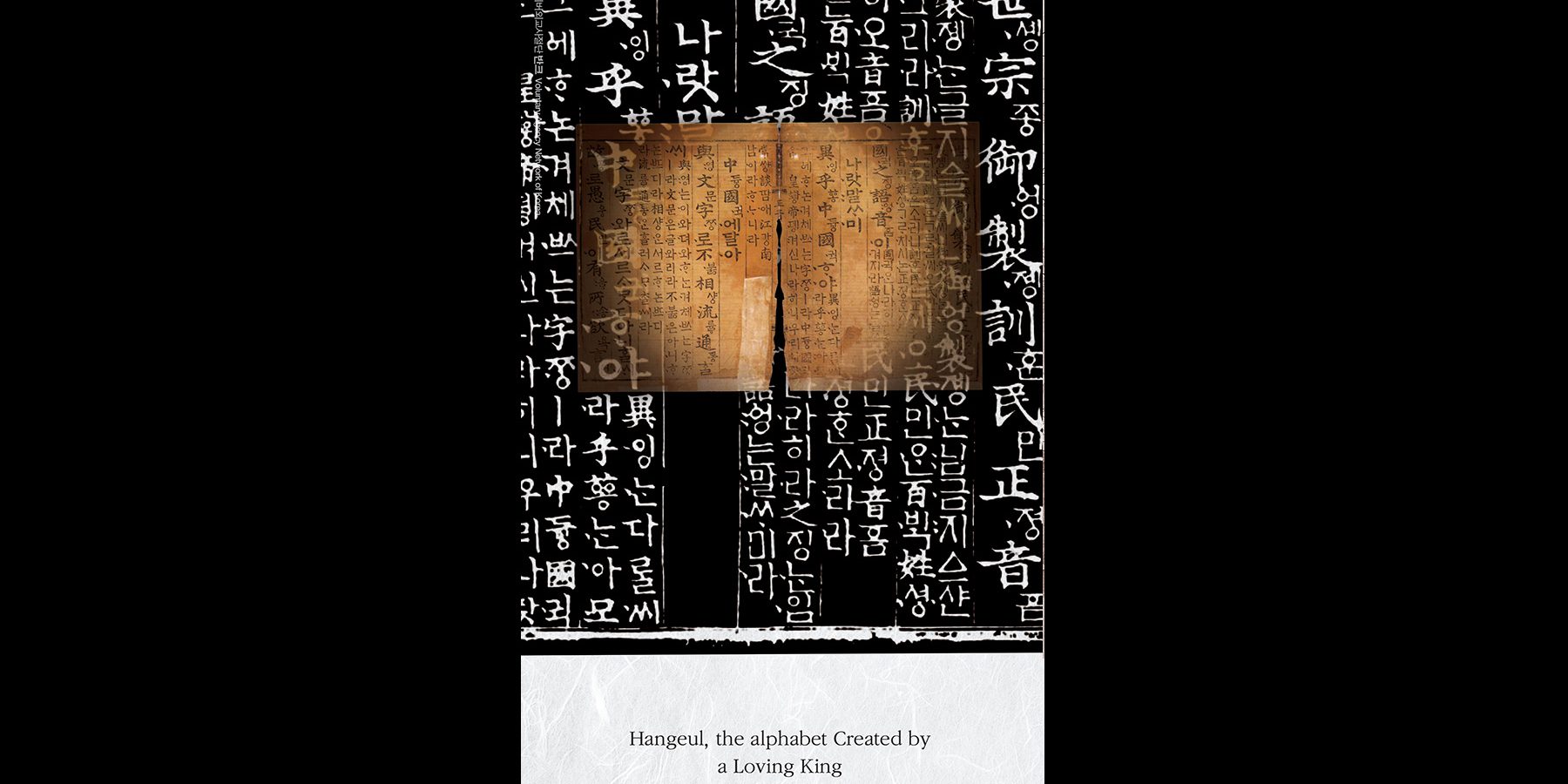Did you know the Korean alphabet was created by a king for the people? The king is King Sejong of Joseon(1392-1910).
King Sejong felt sorry for commoners who were suffering due to illiteracy. Despite the objection of the noble class, he decided to create an alphabet that anyone can learn in a day. The story behind King Sejong’s creation of Hangeul is described in the Hunminjeongum Manuscript or HunminjeongumHaerye in Korean. The manuscript was inscribed on the UNESCO Memory of the World in 1997. The Haerye is a commentary on the Korean alphabet of Hangeul, published in 1446, three years after the invention of Hangeul. It explains how each letter was designed. Due to its scientific design, Hangeul can replicate all available sounds in writing. And it allowed the most vulnerable to express their thought and feelings in writing.
What makes Hangeul special? Dr. Samuel Robert Ramsey, Professor of East Asian linguistics at the University of Maryland, researched Hanguel for over 50 years. In many interviews, he praised Hangeul’s scientific design and described the invention of Hangeul as an unprecedented achievement and monumental development. He particularly values the humanitarianism that is reflected in Hangeul. King Sejong’s idea of educating all people, regardless of gender and class, was seen as dangerous and offensive to the ruling class at the time.
He also comments that Hangeul is not only an indicator of Korea’s level of culture, but also a gift to the world because its value goes beyond the border of Korea. Korean consonants ‘ㄱ’ ‘ㄴ’ and ‘ㄷ’ imitate the shape of vocal organs, showing a clear connection between sound and writing. On the other hand, in English, there is no clue to find any connection in pronunciation between consonants ‘d’ and ‘t.’ Dr. Werner Sasse, professor at the University of Hamburg, praises King Sejong for his systemization of phonology, five centuries earlier than the West, and calls Hangeul the best alphabet that combines philosophy and scientific theory. British historian John Man describes Hangeul as the best alphabet that all languages have dreamed of.
